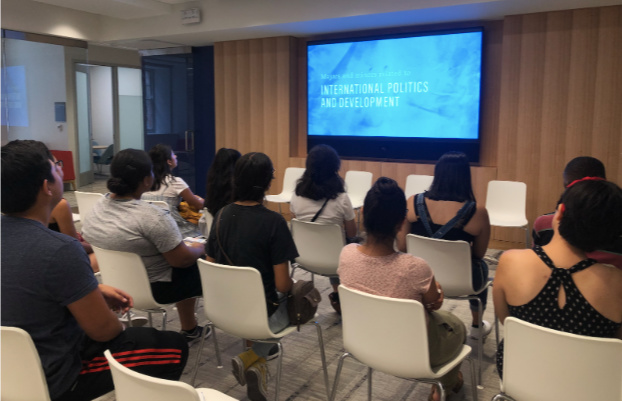Students shouldn’t apply to schools simply based on the name or the perceived reputation of a college or university. While students should have options and not simply settle for the less competitive institutions, they should apply to institutions that are aligned with their goals. If the school is not aligned with their interests, it will be difficult to share a narrative that is genuine.
In today’s college corner, I want to elaborate on the last of the three topics students should consider when drafting their essays. I have already discussed Academic Character and Impact and Initiative, this third topic is important in conveying the bigger picture:
3. Future contributions
While it may sometimes feel like what some college/universities really want to secure are future financial contributions from alumni, the reality is when a student is applying to the more competitive schools, it is important for them to acknowledge how their acceptance to that specific school will allow them to have a greater contribution to the world. This does not just refer to the usual students who are intrigued by science and hope to someday become doctors by attending universities with an amazing pre-med program, it also encompasses those students who thrive in the interdisciplinary spaces. These are the students who may be undecided on a specific major but know that if they attend a liberal arts school with an open curriculum, they will be able to find their true passion.
Every student has the potential to make contributions to make this a better world. Attending a school that can help foster that potential is key to unleashing their greatness. Recently, a group of students I was working listened to a presentation by a former alum, who shared her reasons behind choosing to move to the east coast to attend Columbia. While she was interested in many things, her passion for activism led her to see Columbia as a place for her to join like-minded activists who believed in the greater good. Learning about Columbia’s student engagement with activism and progressive values made her realize that she too could have greater contributions to her own community one day. She needed to leave to experience this. The same goes for many of the students we will encounter. As they think about the contributions they want to make in the future, we must guide them through the process and challenge them to leave their comfort zones as sometimes leaving is the only way to truly become who one is.
Let’s make sure we provide our students with the support and guidance that they need to navigate the daunting task of presenting themselves to strangers in the college essay writing process.

